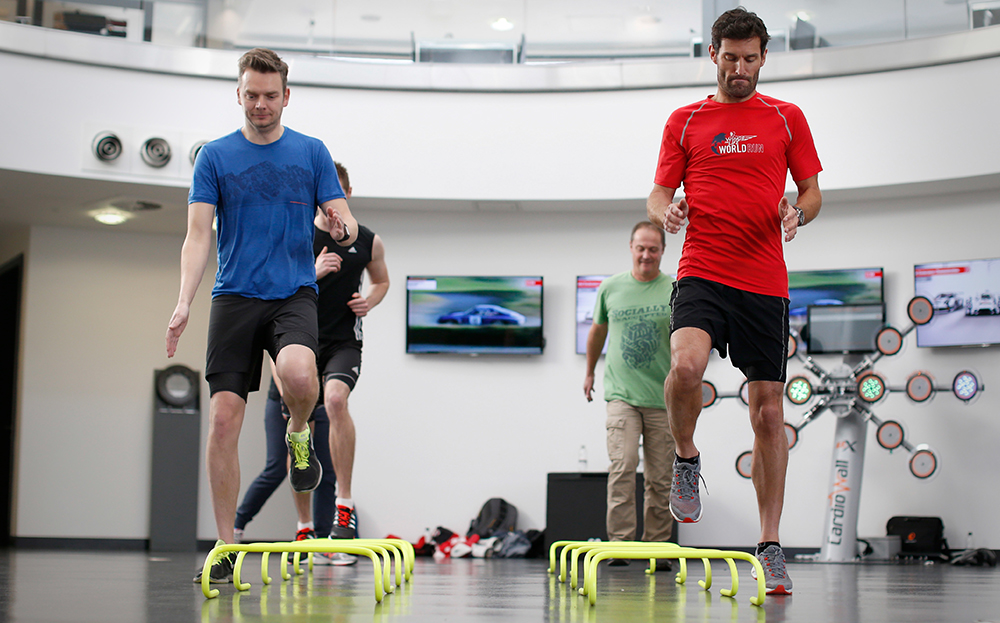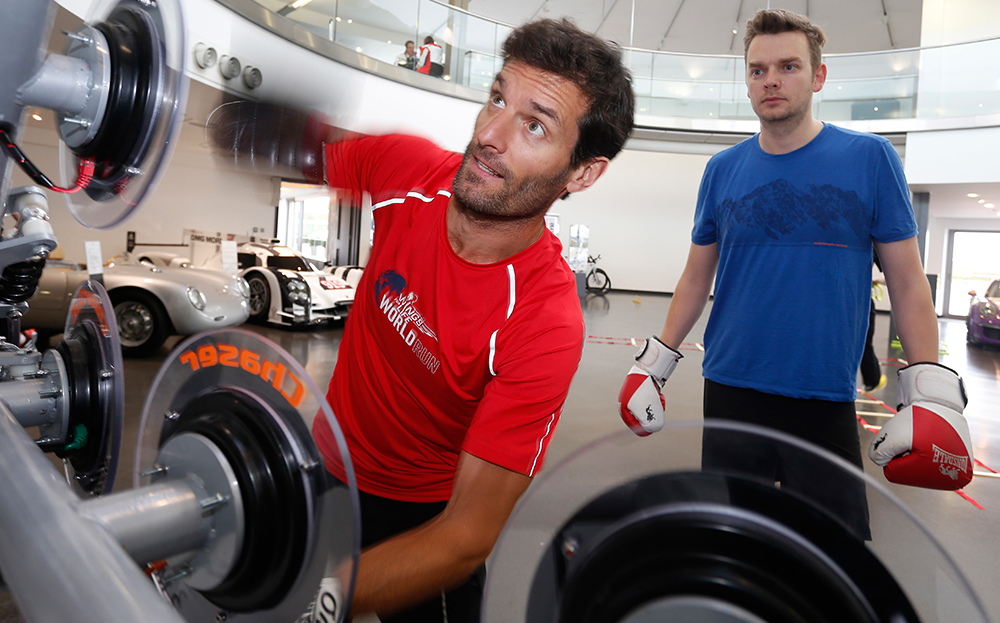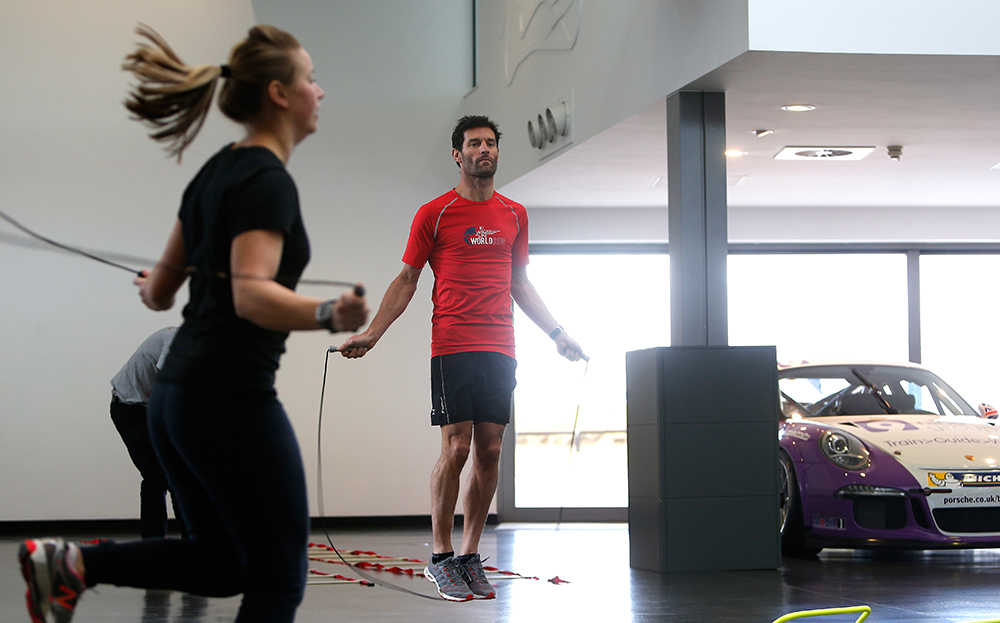Hitting the gym with Mark Webber ahead of the 2015 Le Mans 24 Hours
Who are you calling overweight?

MARK WEBBER has the hollowed cheekbones of the professionally fit. He looks more like an athlete than any other racing driver I’ve met, including Jenson Button. In part it’s because he’s passionate about fitness, but it also hides a weakness: at just over 6ft tall and weighing 75kg (12 stone), Webber has a natural disadvantage over his more diminutive rivals.
Click to read more REVIEWS or search NEW or USED cars for sale on driving.co.uk
Every time he stepped into a Red Bull Formula One car he was giving ground to Sebastian Vettel (66kg), who would benefit from better weight distribution in his car. The problem could be even more acute at Le Mans, where his Porsche teammates use the same car — Webber reckons the weigh difference between him and his co-pilot, Timo Bernhard, who is 10kg lighter, could be worth up to a second over the 8½-mile lap.
Earlier this year I went to a weekend course at the Porsche Human Performance centre at Silverstone, hosted by Webber. It was a chance to get fit for my own (amateur) racing career in a Sunday Times-supported Caterham and to learn more about what it really takes to compete at the highest level. The course – which costs £495 – focuses on the physical and mental side of racing.
My physical disadvantages outweigh even Webber’s. I’m 6ft 3½in tall, weigh 80kg and may not quite have the natural talent of a man who’s won nine grands prix. Moreover, an analysis of my body mass index reveals that I’m carrying three times as much fat as Webber. With a mere 6%, he’s on the borderline of what’s healthy. “It means you’re more likely to succumb to an infection,” he says, “which is why elite athletes are always nervous about flying.”
Moving from workshop to workshop, I’m taught the benefits of a strong core (the muscles around your stomach and back) for stability in the car and the extraordinary power of your glutes (glutei maximi, or backside to you and me). Then it’s on to speed, power and agility work, which means attempting to high-step across the floor. It’s something I haven’t tried since school PE and it quickly transpires that my hamstrings aren’t up to the job. I look more like Bambi than a highly tuned athlete.
After lunch – nutritionally balanced, of course – we discuss the psychology of racing with Webber and the Le Mans winner and former F1 driver David Brabham.
Webber’s 1m Twitter followers know him as @aussiegrit and it’s a title hard earned. His insights into dealing with injury, managing anger on the circuit and coping with the politics in top-level motor sport are not just lessons for the racetrack; they’re lessons in life.

“Back in the early 1990s I went to a Mercedes training camp and had a real wake-up call,” Webber says. “So much of this sport is about application. In the junior formulae lots of people were more talented than me but they lacked the application.”
Brabham agrees: “It’s about how much you want it. In 1990 I did a Formula One test and after six laps my neck was gone. If you’re not fit, you’re not serious.”
Both men promote the benefits of sports psychology, an area of the sport once sneered at by alpha racing types. “I tell myself, ‘I will and I know I can,’” says Brabham.
Part of the Porsche course involves a workshop with Mike Garth. He used to be a senior engineer with the F1 Toyota team but retrained as a psychologist. “I realised that I could gain more time on the track by optimising the performance of the driver than the car,” he says.
It’s fascinating stuff and he shows me a simple breathing technique that helps you manage your nerves and adrenaline at the start of the race. I’ve tried it since and it really works.

The Porsche Human Performance team have all worked in motor sport at the highest level. Webber has spent 20 years perfecting his approach and the results will be evident at the Le Mans 24 Hours this weekend race. Such a high level of fitness will help him cope with the stress and fatigue, but there’s another benefit that often goes unmentioned.
“There’s a sensational spin-off to being in good condition if you crash,” he says. “It’s something to have in your back pocket in a moment of high trauma, but I’m not planning to use it this year.”
Click to read more REVIEWS or search NEW or USED cars for sale on driving.co.uk




